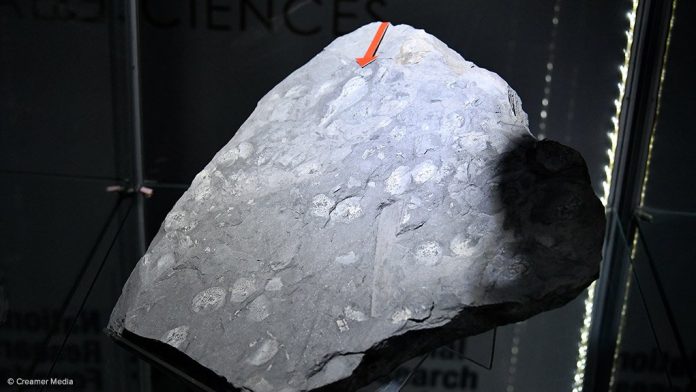More than 360-million years ago, fish began to crawl out of the oceans in an evolutionary leap. South African scientist Rob Gess has discovered these creatures, known as stem tetrapods, were present in the Antarctic Circle not just the warm tropical waters of the equator. This changes our understanding of the conditions under which life was able to crawl out of the seas and evolve into four-legged land walkers and ultimately humans.
“This shows that tetrapods were not exclusively tropical, and they could have evolved anywhere in the world,” said Gess. Gess and Swedish colleague Per Ahlberg described two new species of tetrapods in scientific journal Science on 7 June, taking the total number of known tetrapod species up to 13. Tutusius and Umzantsia are the oldest known four-legged vertebrates in Africa.
Gess, who works for the Albany Museum in Grahamstown, discovered the fossils in rock that he saved from road construction in 1999. He has about 100 tonnes of fossil-containing shale rock. “I’ve slowly chiselled through 20 tonnes of that in the last 20 years. I have another 80 tonnes, and I’m almost certain there will be more [discoveries] as we go through the rocks.”
The larger of the two new species, Tutusius, is about a metre-long, and is “the more evolved of the two”, said Gess. It was named after Archbishop Emeritus Desmond Tutu, a South African icon who was involved in the fight against Apartheid.
“When I was thinking about names for them, it occurred to me that these tetrapods led the way from these rather anoxic swamps out into the sunshine. And it seems to me that in many ways, that was a metaphor for what Desmond Tutu had done.”















